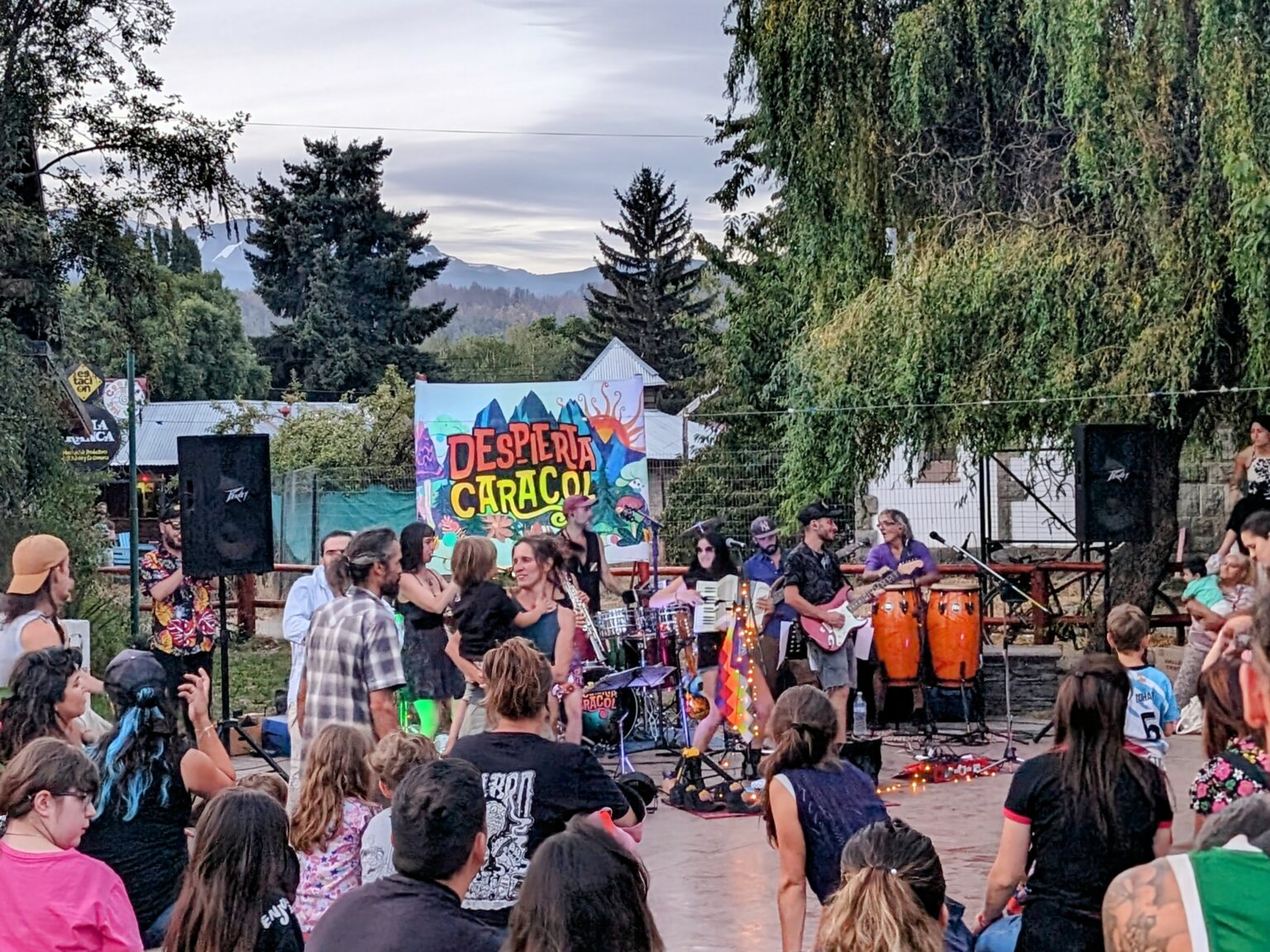“It’s those little human moments that stick with you forever, the random acts of kindness.” – Anthony Bourdain. Similarly to Anthony Bourdain, it is those personal interactions, both the ones that happen to us and the ones that we observe as we travel, that have truly had an impact on us and will change us forever.
Lago Puelo Kayaking
Lago Puelo is a town and national park just outside of El Bolson in the Lake District of Patagonia. (You can get there using the local bus from El Bolson.) To take advantage of the beautiful lakes in the area, we decided to spend the afternoon at Lago Puelo and had heard that they had kayaks at the beach. From their website, we knew that Kayak Lago Puelo, aptly named to be the kayak company at the lake, opened at 1 pm and being the eager Americans we are, we wanted to get there around 12:30 to reserve our kayak. We were in the mindset that the kayak tours started at 1 pm and, because we weren’t able to reserve online, we wanted to make sure that there was still availability.
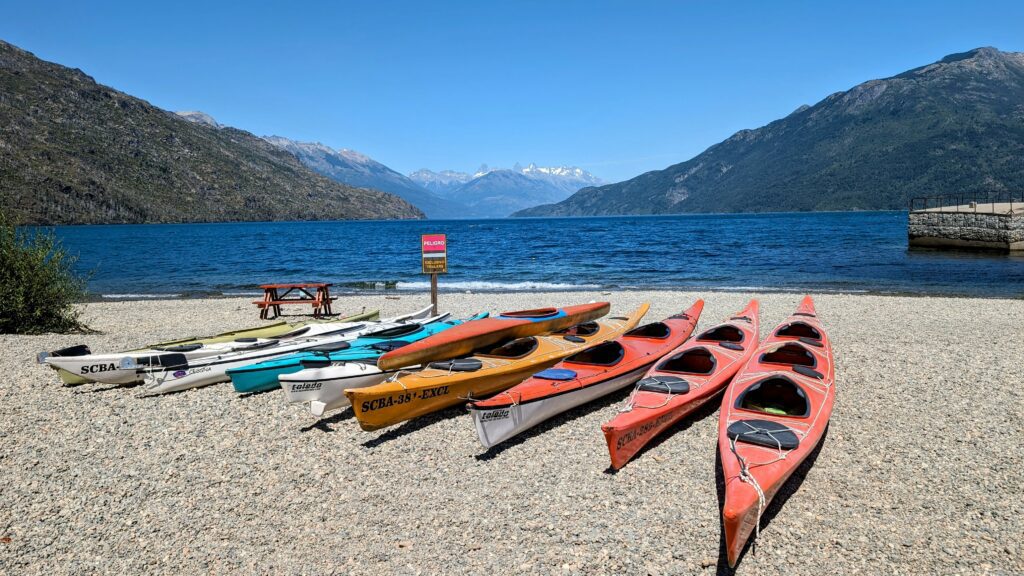
We were kindly greeted by the Argentine reality of respecting published working hours and easing into the workday. When they say that they open at 1 pm, they literally unlock the door to their building for the first time at 1 pm. (This isn’t the case for restaurants FYI.) Our early rush was more than unnecessary, although we were some of the first people on the beach.
We also learned that Kayak Lago Puelo is actually a kayak school that teaches people kayaking techniques through tours on the lake. We were amazed to find out that these tours would just be us and the guide, not because there wasn’t more interest, but because they wanted to ensure a personalized experience and instruction.
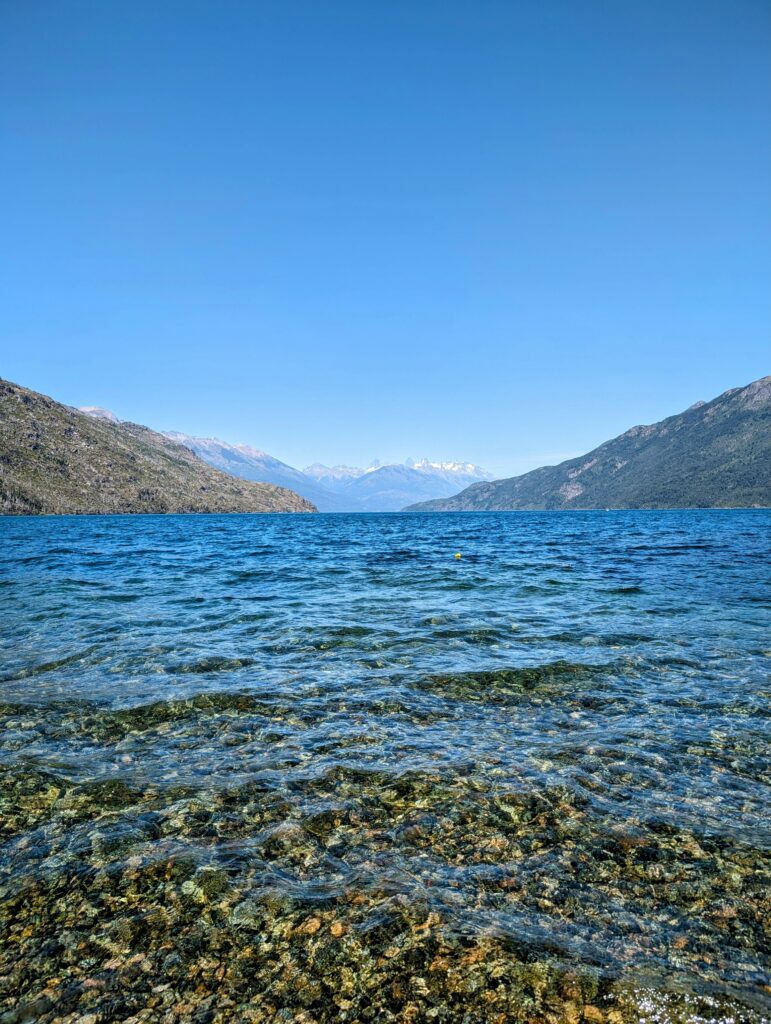
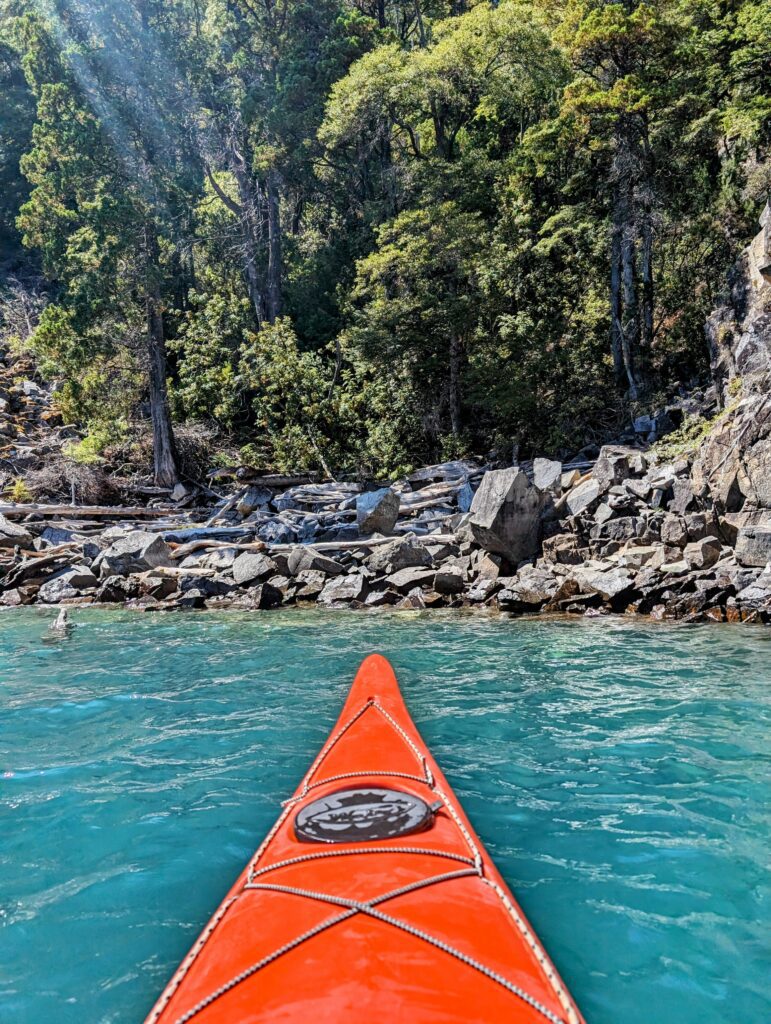
Alberto (owner, operator, social media manager, marketer, instructor, videographer, photographer, administrator, manager, tour guide, and Lago Puelo Resident) would be the guide, and main rower, for our two-hour tour. He was never in a rush to get us in the water and through the tour, so he could get to his next clients. Truly, he wanted to get to know us, why we were traveling, what we were doing in this part of Argentina. Alberto made sure we understood everything he was saying, that our questions were answered, and that our own responses to his questions were complete thoughts despite the language struggles that we may have had.
And when it came to the kayaking, while Alberto told us we did a great job, I’m pretty sure he was the main reason we made any headway on the lake. But all three of us definitely had an incredible time on the water, rowing through waves, along incredible shores, and above some of the clearest water we’ve ever seen.
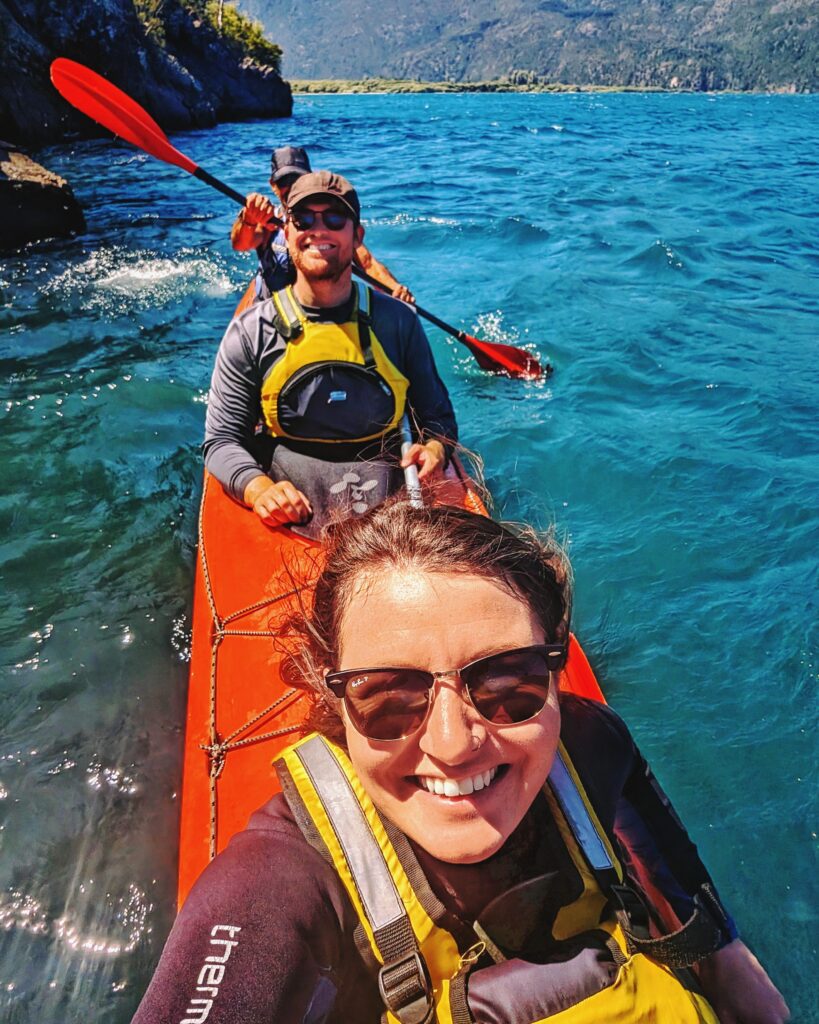
Lago Puelo Brewery Festival
After our time kayaking, we decided to check out the inaugural Lago Puelo Cervecero del Bosque (Brewery Festival). The area has a number of breweries and this festival was intended to celebrate them. We hadn’t learned our lesson from earlier and arrived right on time… on time to see them wrapping up the set up and vendors arriving at the town’s central park. We took this as our sign to relax at a local restaurant to kill an hour and make our official appearance at a more appropriate time.
Upon our return, the festival was in full swing. We saw children and dogs running through the park, smelled the smokey scent of asados (large barbeques that are made over wood fires) starting at the food vendor area, and listened to local musicians being highlighted on the main stage of the festival.
We, of course, had to try the beer. If you have ever gone to a grocery or liquor store with Kevin, you would quickly learn about his love and appreciation for the craft and flavors of beer, stemming from his discovery of Belgian ales when he studied abroad in Europe. It’s also something we look into as we travel because, similarly to food, local flavors are often infused into beer. This area is known for its raspberry production and many of the brewery vendors supplied a raspberry beer, either through an infusion or by mixing a raspberry marmalade directly into the beer (don’t knock it until you try it).
Beer in Kevin’s hand, we made our way to the festival stage to hear the local music and people-watch. As we sat there, we really felt like we were at a small-town fair, (like a fall festival in Gilmore Girls). Those from the town and surrounding areas were running into people they knew and catching up. Multigenerational families had all gathered to picnic and spend time together. Supervision was lightly required for the kids playing together in groups because the whole community was there at the festival.
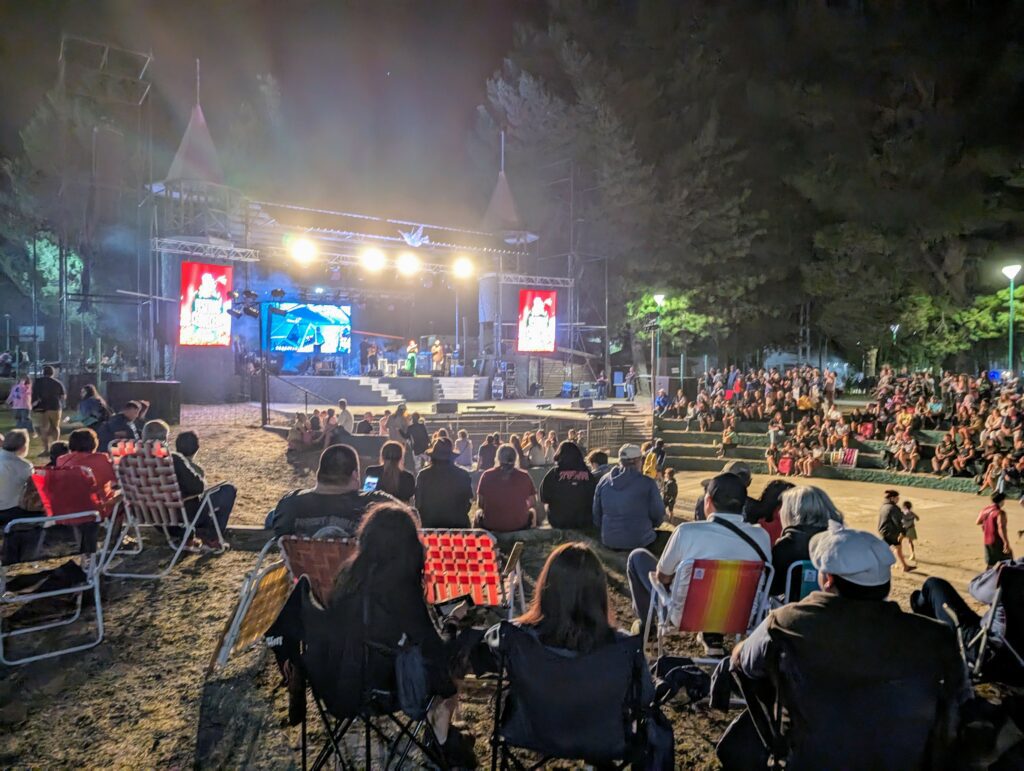
Our favorite part was seeing all the people who spontaneously got up to dance together to the traditional music. It was a collective of people who weren’t strangers to one another, who looked out for each other, and who clearly cared about the interpersonal relationships of the entire community and beyond.
We left that evening feeling full from the relationships and kinship we had built and experienced from the Lago Puelo community, not to mention the delicious asado we devoured!
How Are Those Little Moments Sticking Forever?
As we travel through Argentina and other countries in South America, we often find ourselves comparing back to what we grew up with in the United States. Comparing daily interactions, comparing different customs, comparing the variety of cultures. And this comparison is not to say one is better than the other. It’s human nature to evaluate and part of that evaluation is understanding what you know and what you are learning. One of the big things that we compare is the daily personal interactions that we face and the value that people place on that interaction.

For example, in South America, when walking into a store or talking to anyone who might be servicing you (waiter, tourism office, or a stranger that you are asking help from), you need to say hello (hola), ask them how they are (como esta?), and allow for that chit-chat. If you don’t, you are seen as rude.
In contrast, in the United States, at least in Chicago, people often skipped over the pleasantries and jumped straight to the point. We may have said that it’s just more efficient or we are minding our business. However, we had removed the fact that the person that we are talking to is just that, a person. And this interaction had become purely a transaction.
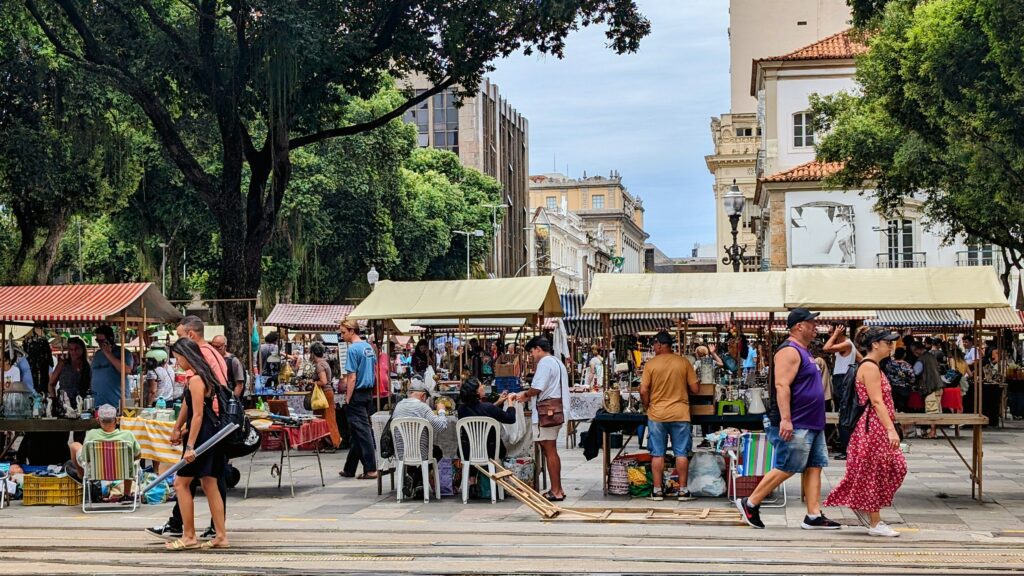
The more I thought about it, the more I realized that so many interactions I had in the United States were purely transactional. Did I ever ask my cashier at the Jewel Osco grocery store down the street from my house about their day and expect to hear an honest answer and anecdote? Did the server at Chipotle with a line of Magnificent Mile tourists running through the restaurant ask me about mine and wait for my response before asking if I wanted a bowl or a burrito?
The simplest way that we saw this was how everyone greets every person they know with a quick hug and peck on the cheek. You’re coming in for your shift at the grocery store? You’re going to say “hola” to your coworker working at the register, give them a “besito” on the cheek, and ask them about their date the previous night. And it doesn’t matter that the line to that register is growing because everyone will get through!
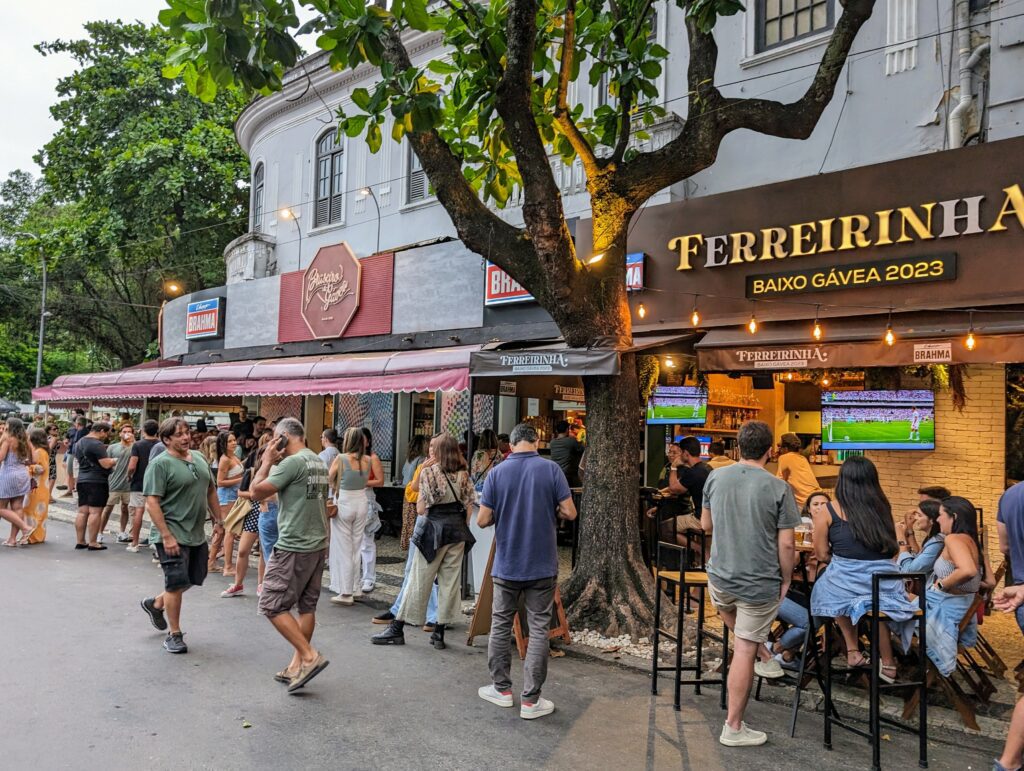
But that personal interaction and interpersonal interest has so much more value here. Yes, things move slower. Yes, people are more nonchalant. But isn’t the value of true human contact worth so much more than the 15 seconds we used to save by not acknowledging the Target employee collecting all the carts in the parking lot? And isn’t it nice to know that people care about the wellbeing of others rather than a simple transactional value?

